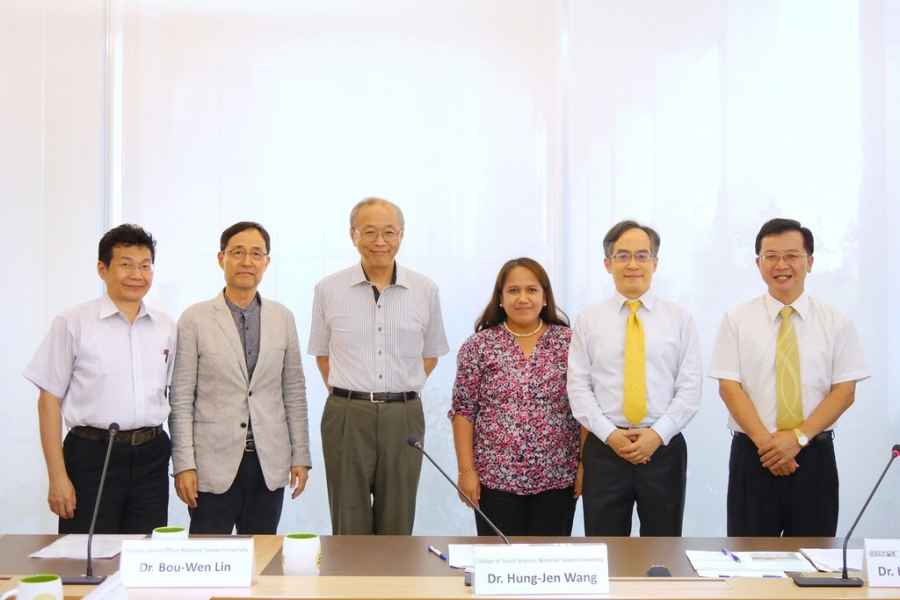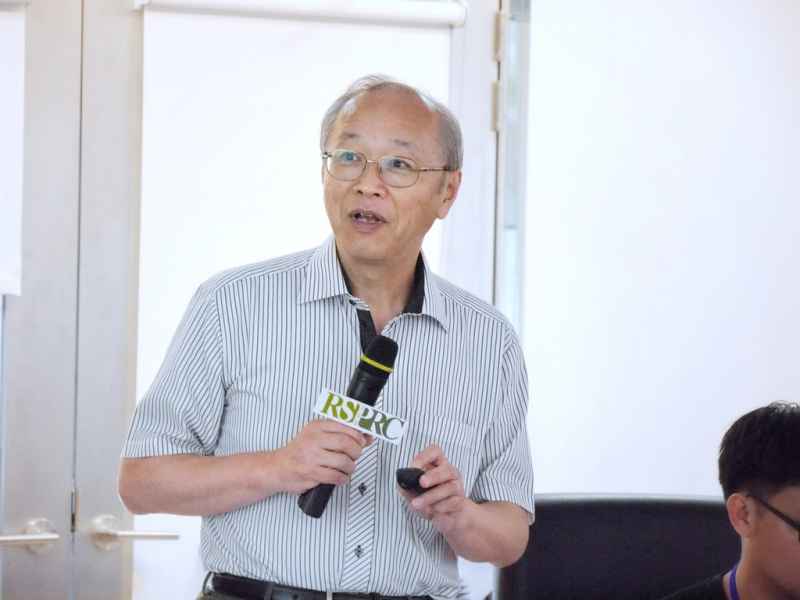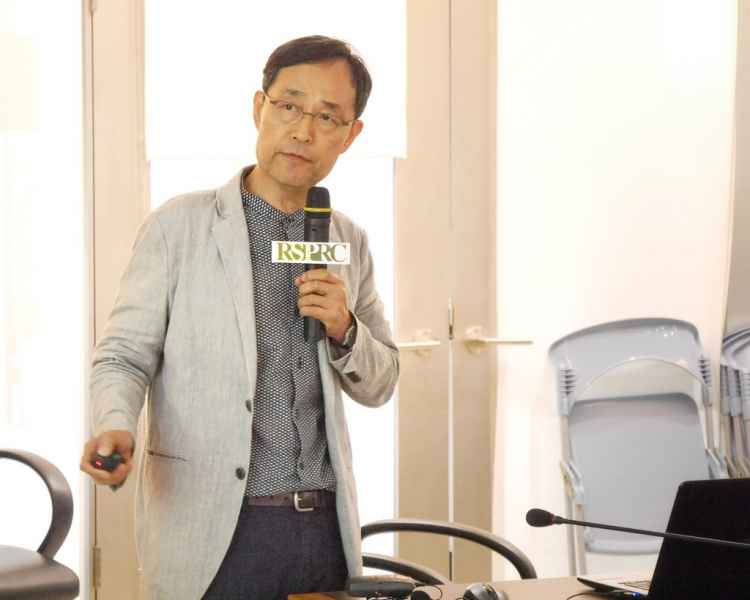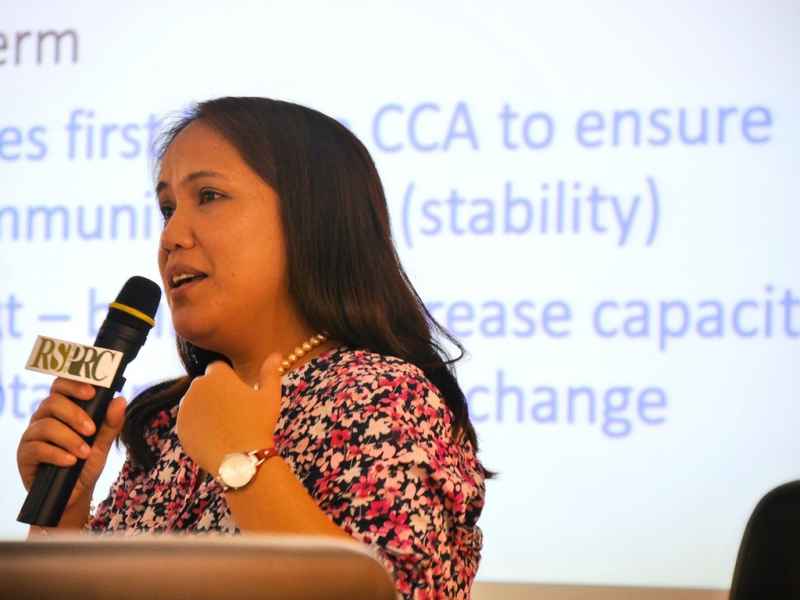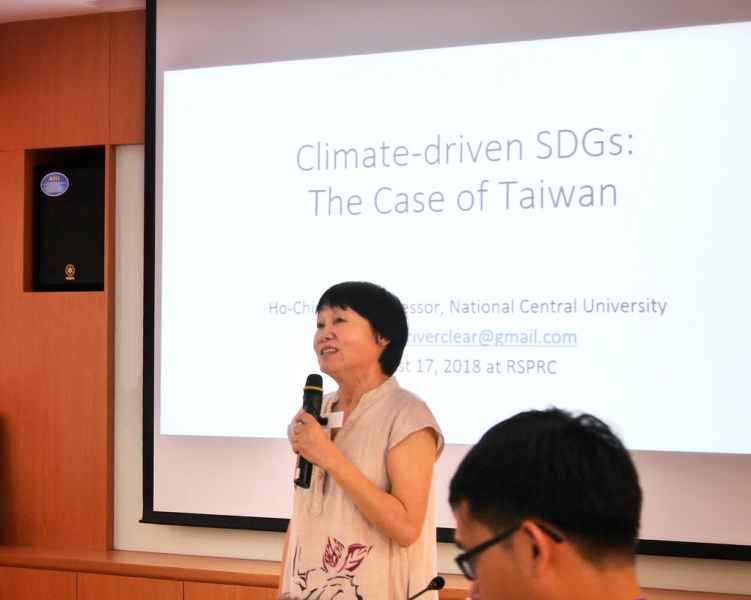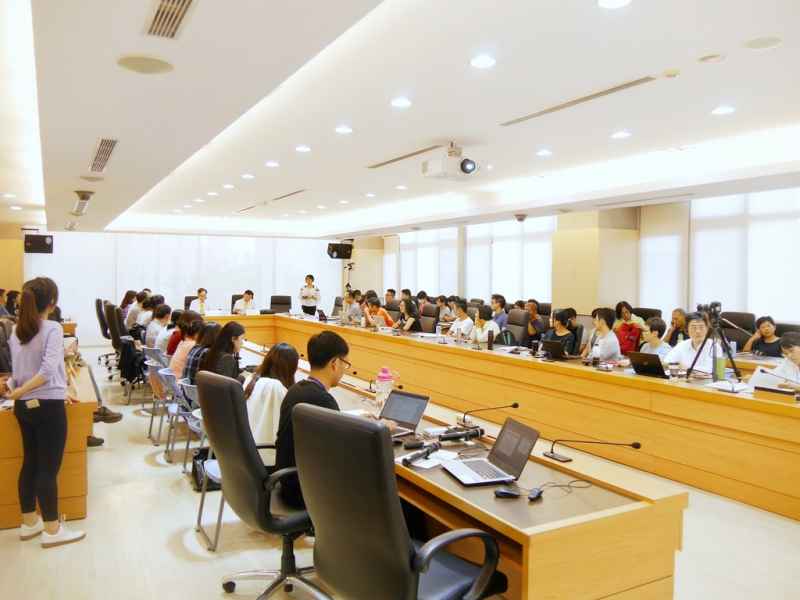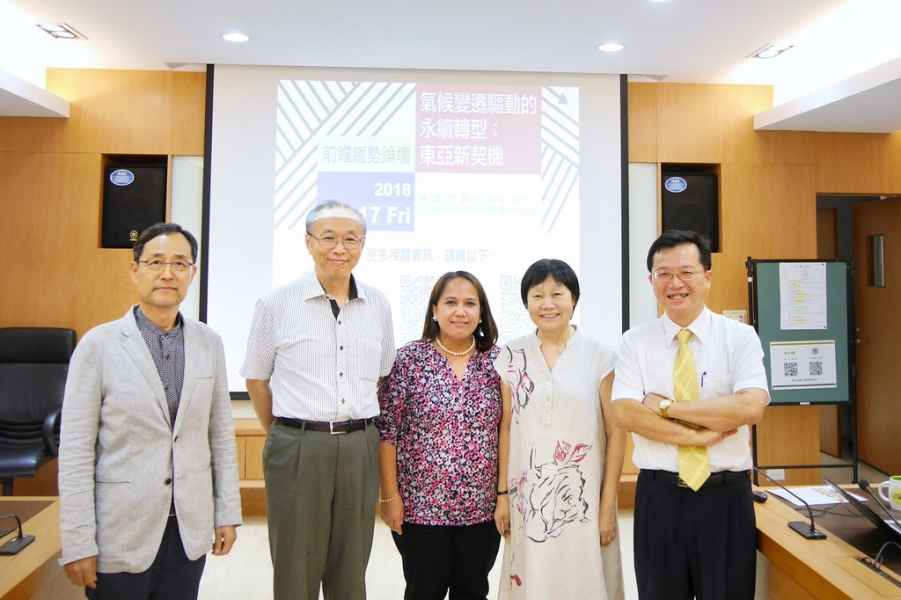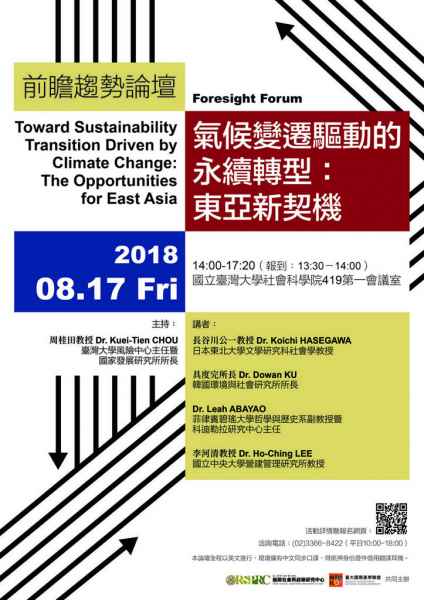Event Reivew Video Picture Slides Download Linkage Forum Agenda
On 17 August, dozens of people who care about sustainability transition, came from all walks of life and gathered at the College of Social Science, National Taiwan University to participate in the ‘Towards Sustainability Transition Driven by Climate Change: The Opportunities for East Asia’ foresight forum, jointly organized by the Risk Society and Policy Research Center (RSPRC) and the Industry Liaison Office National Taiwan University (ILO NTU). The forum invited experts and scholars from Japan, South Korea, the Philippines and Taiwan, to share their experiences in their respective countries.
In the opening speech, National Taiwan University Economics Professor Hung-Jen Wang said that the many new challenges that Taiwan is facing today require multidisciplinary approaches, new paradigms and collective effort to come out with viable solutions. ILO NTU Director Professor Bou-Wen Lin followed up by saying that the role of the ILO is in building collaborations between academia and industries, to brainstorm on solutions to deal with the harsh environments and challenges, and to jointly seek out new opportunities for innovative transformation.
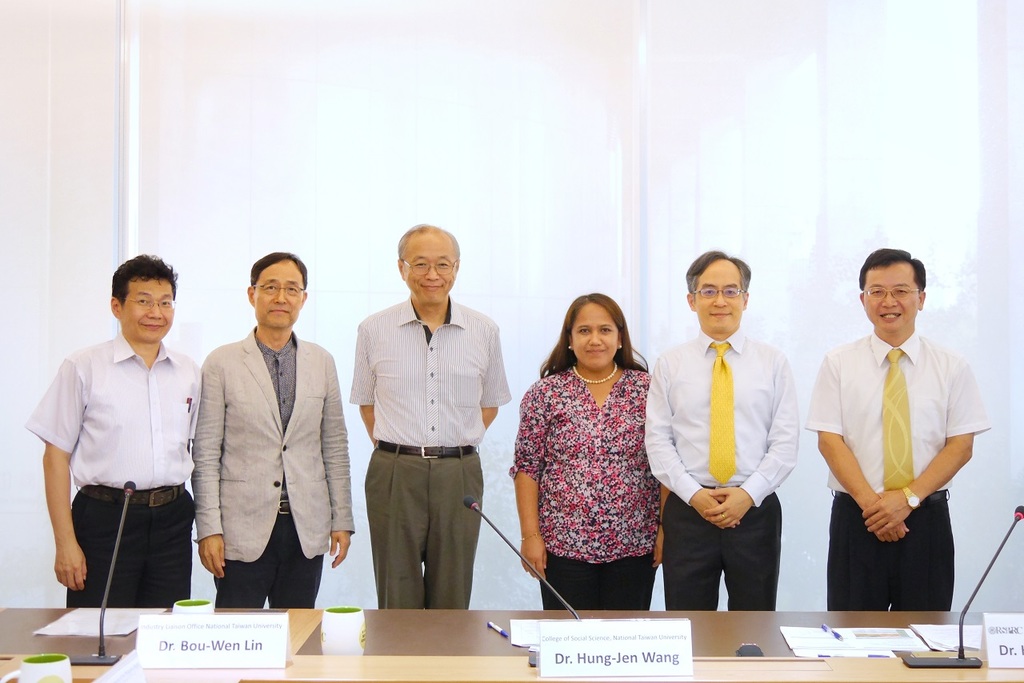
Group photo of invited guests and speakers. From left: ILO NTU Director Professor Bou-Wen Lin, Director at South Korea’s Environment and Society Research Institute Dr. Dowan Ku, Professor of Sociology at Japan’s Tohoku University Dr. Koichi Hasegawa, Associate Professor of History at the University of the Philippines Baguio, Dr. Leah Abayao, National Taiwan University Economics Professor Hung-Jen Wang, RSPRC Chief Director Professor Dr. Kuei-Tien Chou
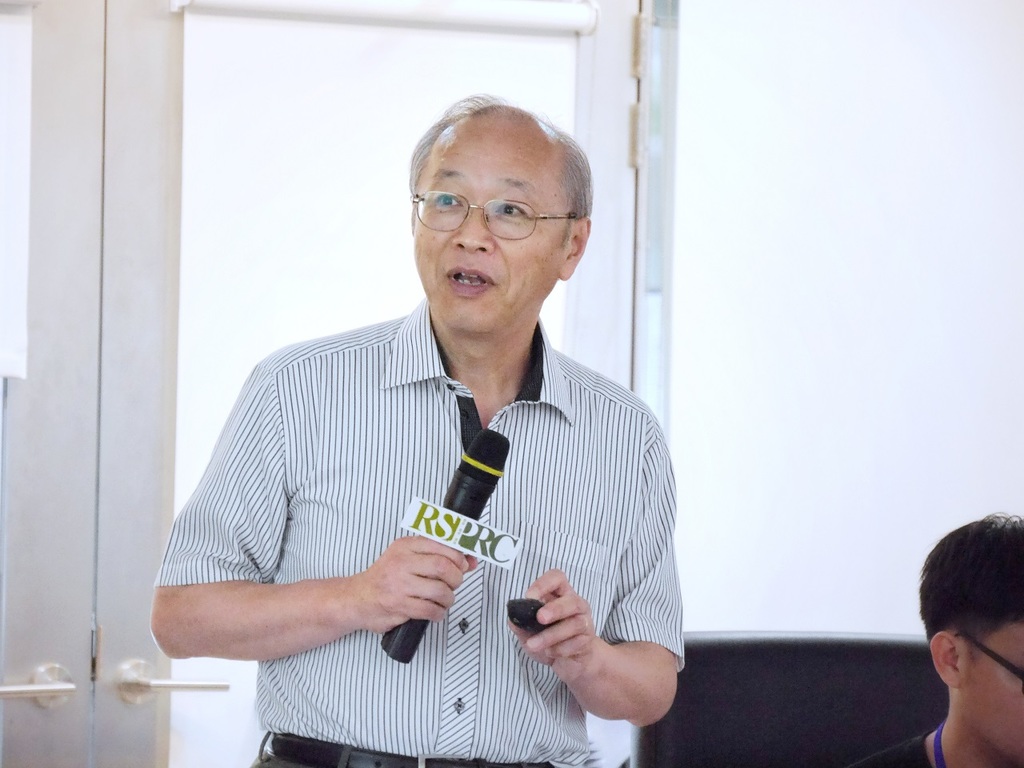
The forum’s first speaker was Dr. Koichi Hasegawa, Professor of Sociology at Japan’s Tohoku University. Dr. Hasegawa pointed out that after the Fukushima accident, there has not been a change in Japan’s climate change and energy policy. He said that since 2013, Japan has experienced a decoupling between economic growth and GHG emissions. In addition, Japan’s energy estimation is an over-estimation. However, the Japanese government and businesses still prefer nuclear energy over renewable energy. Also, the Japanese Prime Minister Shinzō Abe is a conservative politician who is more keen to promote Abenomics, rather than to deal with climate change. To this end, he stressed that in the face a government and businesses which lack the will for energy transformation, Japan’s civil society should seek out more effective strategies to push for change.
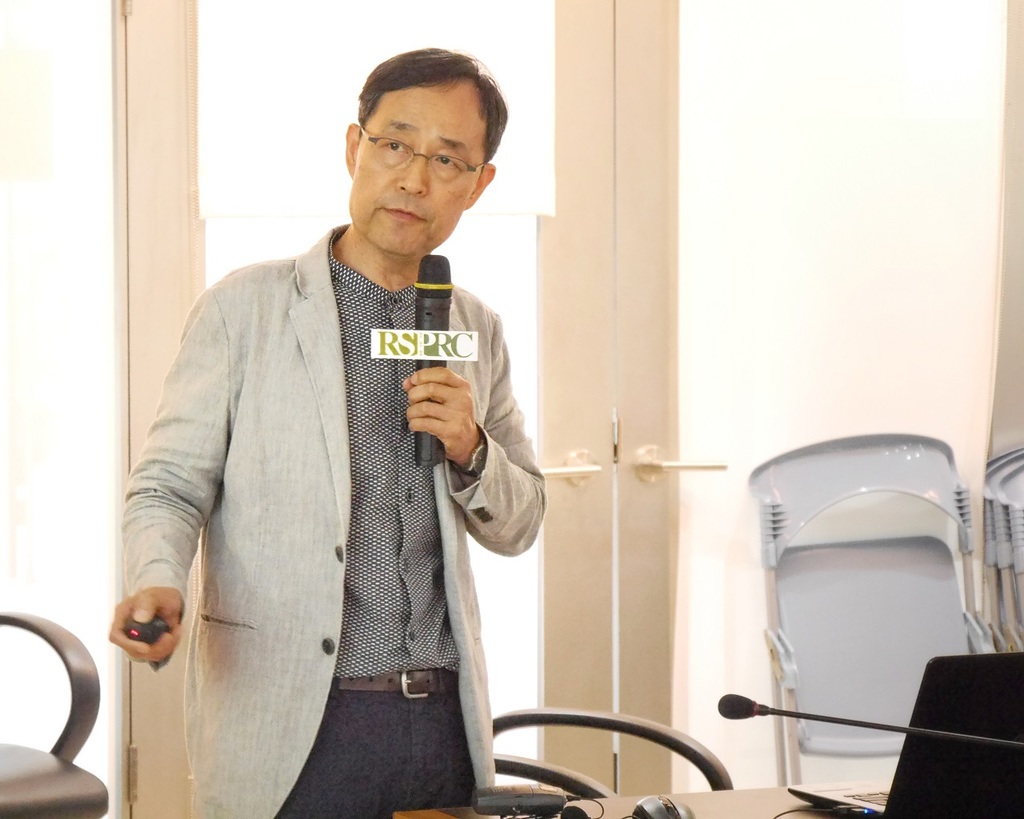
Dr. Dowan Ku, Director at South Korea’s Environment and Society Research Institute, spoke next and explained that there are three approaches to sustainability transition: the socio-technological approach, socio-ecological resilience, and the socio-institutional approach. Even though a nuclear reactor was shut down and another is in the process of being shut down, the government is still in favor of resuming construction of two reactors. In addition, Dr. Ku opined that South Korea is at the stage of developmental democracy, and needs to move from nationalism to ecological cosmopolitanism. But to become an ecological democracy, it requires an open and participatory policy process, to develop ecological sustainability.
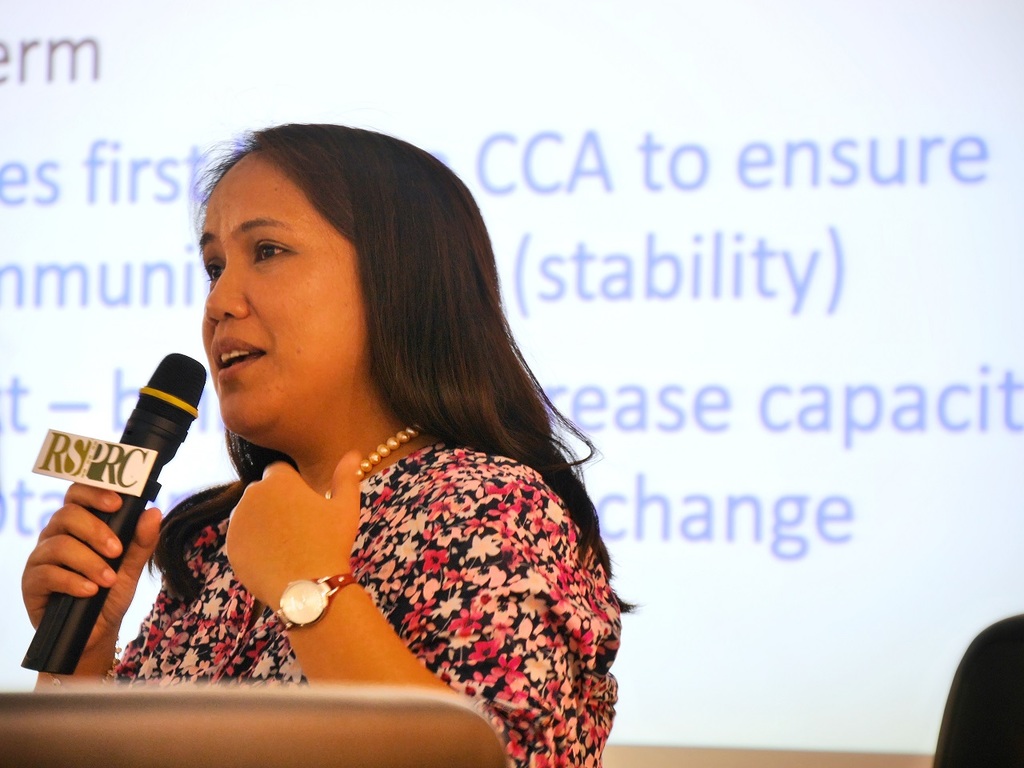
The third speaker, Dr. Leah Abayao, Associate Professor of History at the University of the Philippines Baguio, shared that in the Philippines, the Disaster Risk Reduction and Management (DRRM) is used as a strategic method to attain sustainability. Establishing a Disaster Risk Reduction and Management Office (DRRMO) at all levels of government (provincial, city and municipality levels) has therefore helped to allow policies to be developed at a local level and fed back up to the national level. Training is also conducted for local government units (LGUs). Even though DRRM is seen as an additional responsibility and is therefore not prioritized by the LGUs, the frequency of floods and landslides over the last 5 to 6 years is allowing local communities to have a greater consciousness that these disasters are due to climate change.
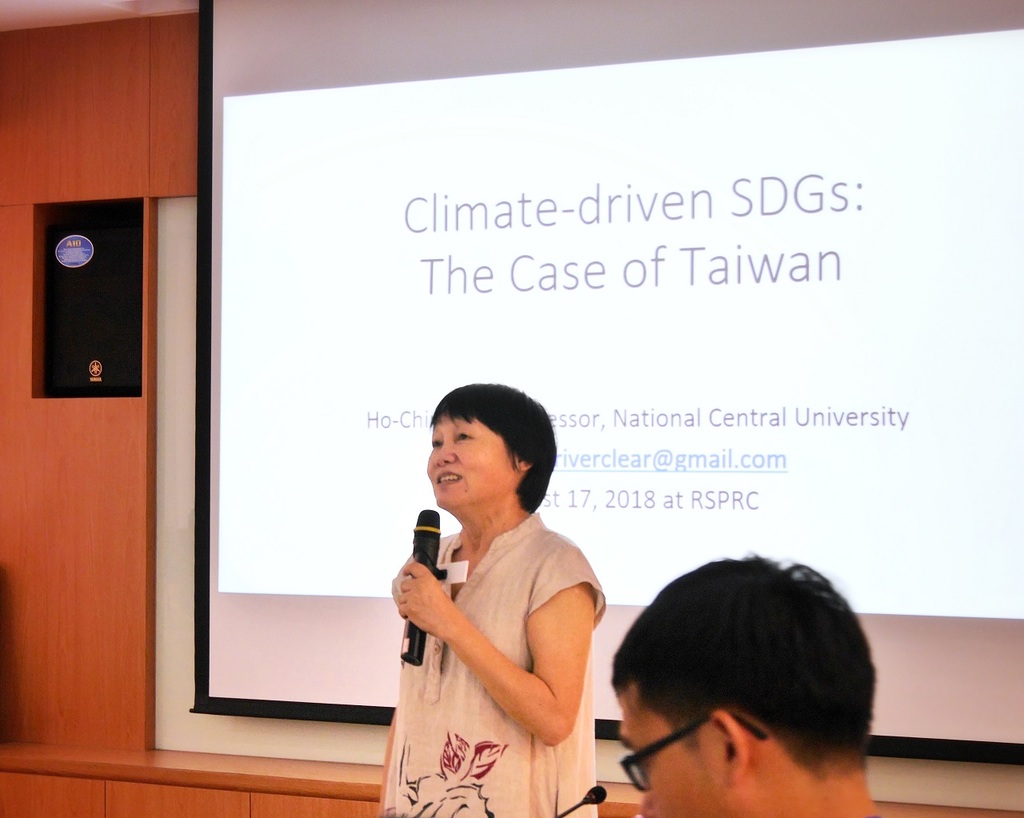
Finally, Professor of International Relations at Taiwan’s National Central University Dr. Ho-Ching Lee explained that with the Sendai Framework on DRR passed on March 2015, the SDGs launched in September 2015 and the Paris Agreement adopted consensus in December 2015, the 3 streams of environmental and developmental issues are converging. She added that Taiwan has also issued a VNR (Voluntary National Review), which included the 17 goals under the SDGs. Taiwan has also created an additional 18th goal to “establish a nuclear-free homeland by 2025”.
At the end of the forum, Dr. Hasegawa highlighted that East Asian countries have shared experiences of natural disasters and that building resilient communities is important for sustainable societies and development. Professor Chou concluded the forum by saying that there needs to be a clear roadmap of climate change and disaster management, or our societies will become more vulnerable and we would be exposed to more systemic and transboundary risks.
For more details, you can watch the videos of the speakers’ presentations and read their presentation slides.
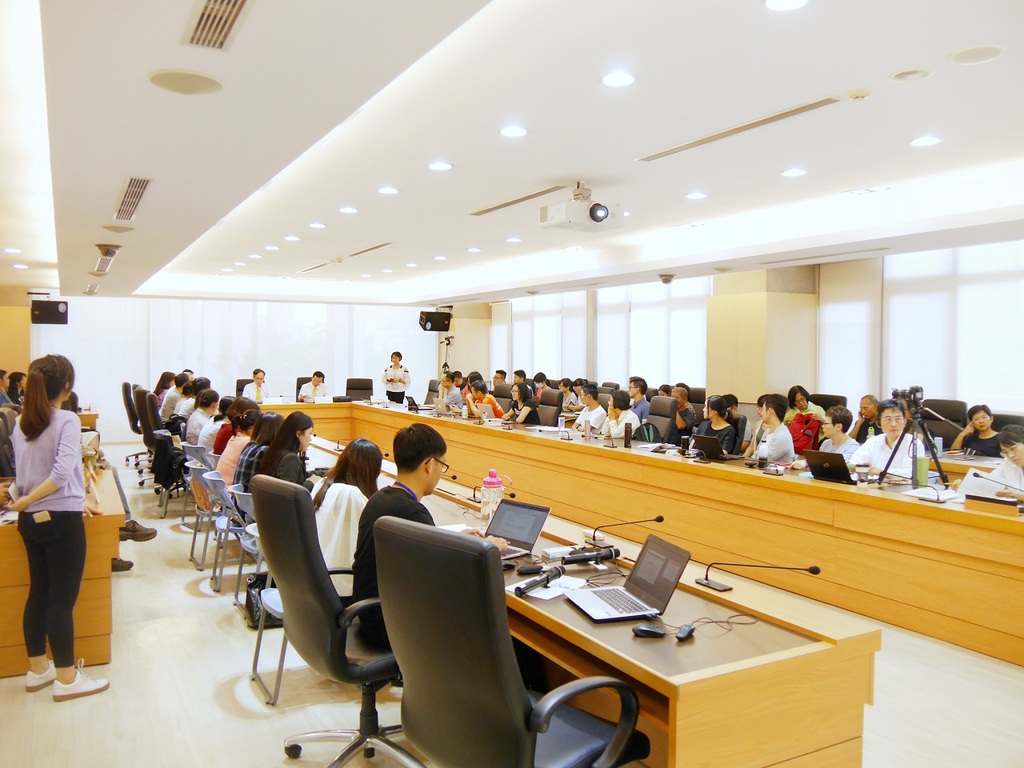
Forum participants from all walks of life.
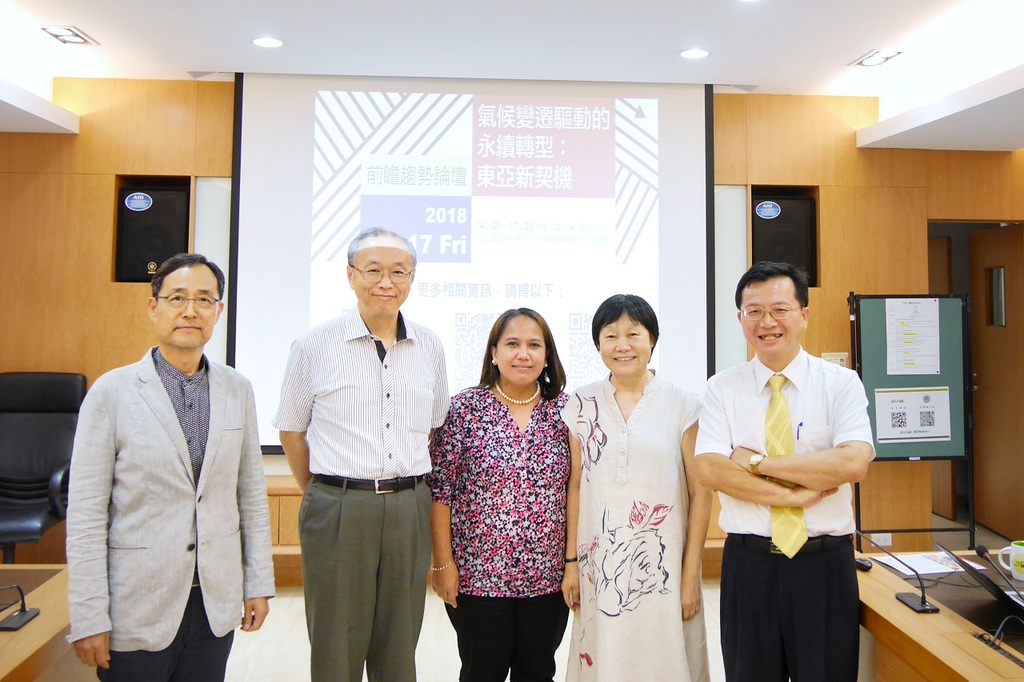
Group photo of the host and speakers after the forum.
Error
Joomla Gallery makes it better. Balbooa.com
Event Review Video Picture Slides Download Linkage Forum Agenda
Video:Opening - Toward Sustainability Transition Driven by Climate Change: The Case in East Asian Countries
Video:Dr. Koichi Hasegawa - Climate Change and Energy Policy in Japan
Video:Dr. Dowan Ku - Sustainability Transition Policies in South Korea: Eco-democratic View
Video:Dr. Leah Abayao - Sustainability Transition & DRRM Policies in the Philippines
Video:Dr. Ho-Ching Lee - Climate-driven SDGs - the Case of Taiwan
Video:Comprehensive Discussion
Activity Video Picture Slides Download Linkage Forum Agenda
Slides Download:
Why do we need sustainability transformation? How can the transformation take place? Below are some recommended articles for further reading:
International news:
2018 歐盟:轉型社會創新宣言 (article is translation in Chinese, please refer to hyperlinks for the original reports: Manifesto for Transformative Social Innovation)
2018 IRENA 報告摘要―全球能源轉型:2050路線圖 (article is in Chinese, please refer to hyperlinks for the original reports in English:IRENA Global Energy Transformation )
2017《東亞能源轉型》Energy Transition in East Asia - A Social Science Perspective
2018/04/11台灣十大溫室氣體排放企業之排放量變化與轉型行動簡析 (article is in Chinese)
2018/04/16永續轉型視角下的台灣循環經濟推動策略 (article is in Chinese)
2018/05/23【活動回顧】永續轉型大哉問-李遠哲院長與青年對談 (article is in Chinese)
2018/05/04【活動回顧】轉給你看!我們都是行動者 系列講座 (article is in Chinese)
Forum Agenda:
|
時間 Time |
活動內容 Events |
|
13:30-14:00 |
報到Registration |
|
14:00-14:10 |
開場&貴賓致詞Opening |
|
14:10-16:30 |
東亞國家氣候變遷永續轉型經驗分享 Toward Sustainability Transition Driven by Climate Change: The Case in East Asian Countries 主持人:周桂田教授/台大風險中心主任暨國家發展研究所所長 Chairperson: Dr. Kuei-Tien CHOU Director of Risk Society and Policy Research Center, NTU; Director of Graduate Institute of National Development, NTU |
|
14:10-14:40 |
案例一:日本氣候變遷與能源政策 Climate Change and Energy Policy in Japan. 講 者:Dr. Koichi Hasegawa長谷川公一教授/日本東北大學文學研究科社會學教授 Professor, Department of Sociology, Graduate School of Arts and Letters, Tohoku University, Japan |
|
14:40-15:10 |
案例二:南韓永續轉型政策:生態民主觀點 Sustainability Transition Policies in South Korea: Eco-democratic View 講 者:Dr. Dowan Ku具度完所長/韓國環境與社會研究所所長 Director, Environment and Society Research Institute, South Korea |
|
15:10-15:30 |
中場休息 |
|
15:30-16:00 |
案例三:菲律賓永續轉型及災害風險降低與管理政策 Sustainability Transition & DRRM Policies in the Philippines 講 者:Dr. Leah Abayao/菲律賓碧瑤大學社會科學院哲學與歷史系副教授暨科迪勒拉研究中心主任 Director of Cordillera Studies Center, University of the Philippines Baguio; Associate Professor of History, Department of Philosophy and History, College of Social Sciences, University of the Philippines Baguio |
|
16:00-16:30 |
案例四:台灣氣候變遷永續轉型案例 Climate-driven SDGs - the Case of Taiwan 講 者:Dr. Ho-Ching Lee李河清教授/國立中央大學營建管理研究所教授 Professor of International Relations, Graduate Institute of Construction Engineering and Management, National Central University, Taiwan |
|
16:30-17:20 |
綜合討論Discussion |



